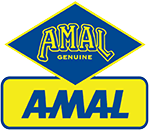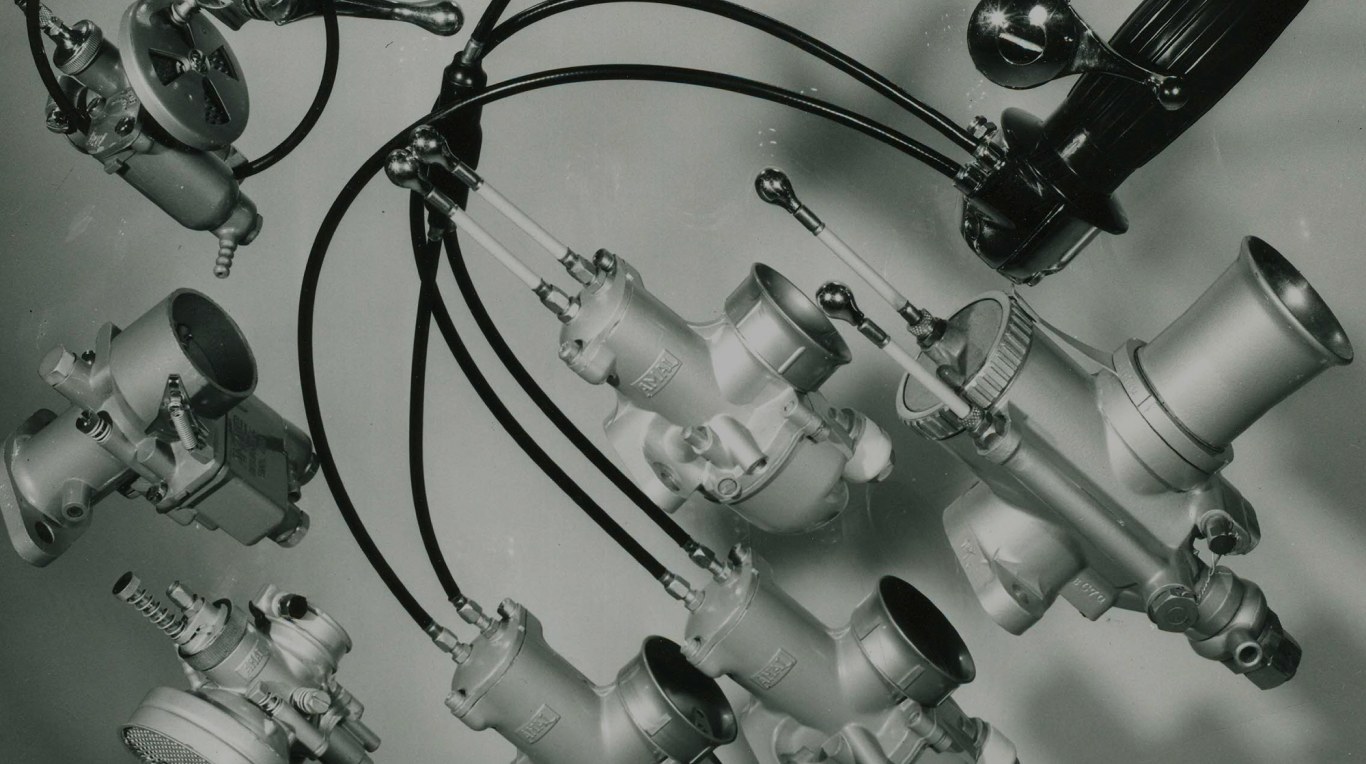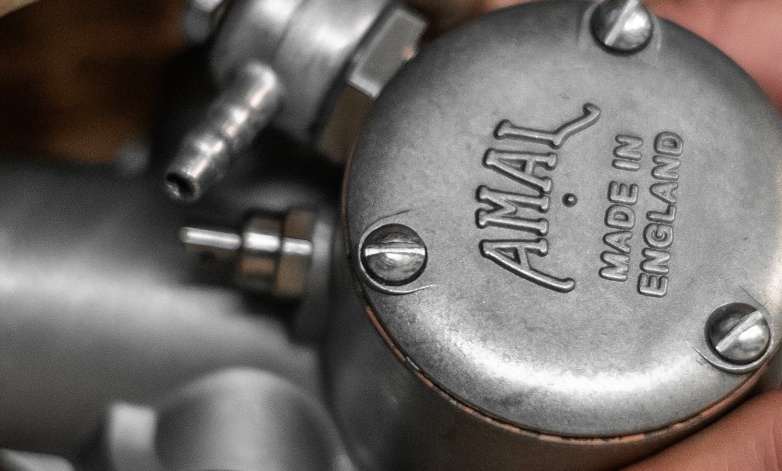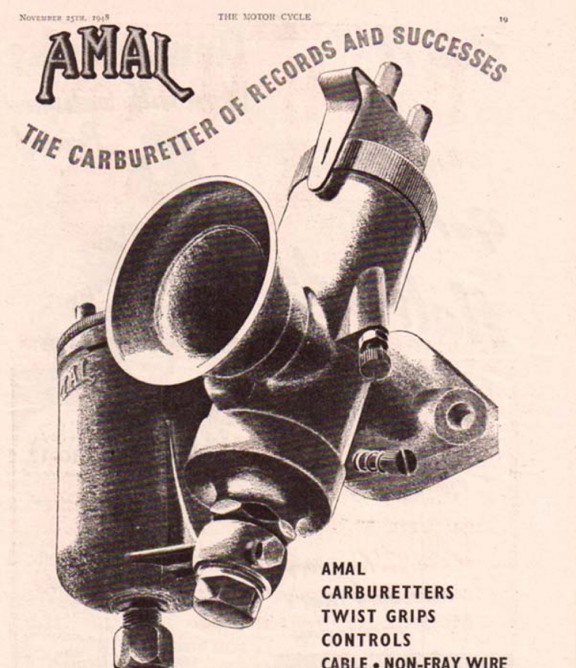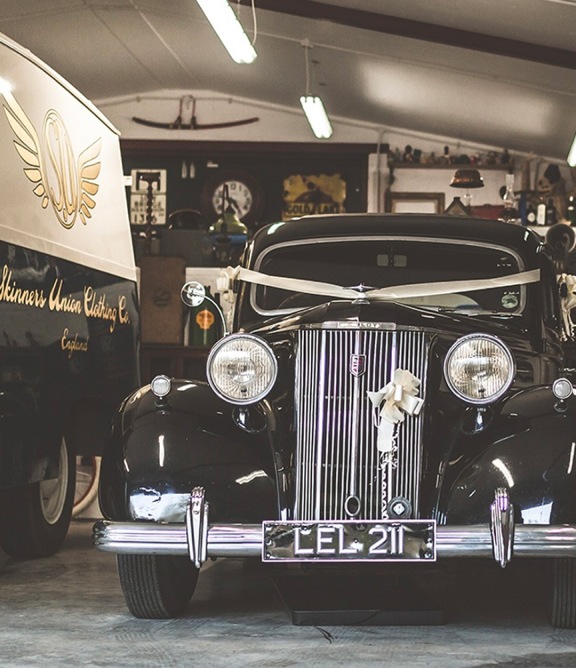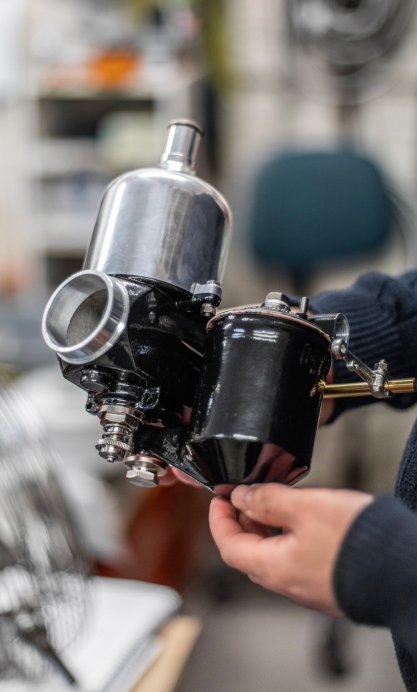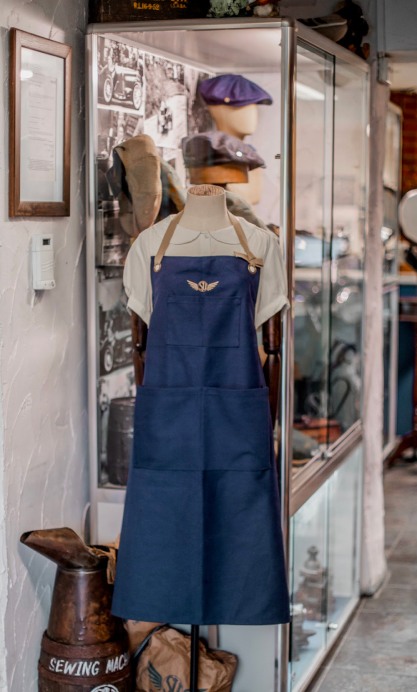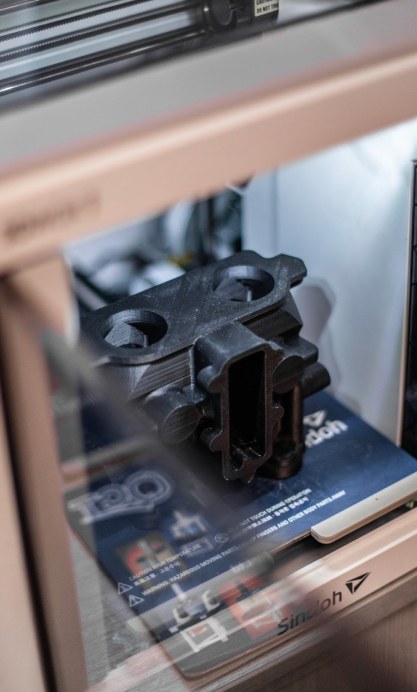The company was formed in 1927 under the name Amalgamated Carburetters Ltd which brought three manufacturers,Brown and Barlow, Amac and C. Binks Limited.The company name was later shortened to Amal limited 1931.
In 1933 Amal updated their standard carburetter range to use zinc alloy die castings replacing brass. This was both lighter and cheaper to produce but allowed for more complex shapes and improved tolerances.Numbering for the carburetters was changed from 4,5,6 and 9 (denoting bore size) to 74,75,76 and 89. The design was updated again in 1939 with the primary air being drawn from inside the air intake rather than using unfiltered air. The carburetters were renumbered again to 274,275,276 and 289 to reflect this change.
In 1954 Amal launched the Monobloc series to replace its standard range.The design incorporated the float chamber in the side of the main casting and improved performance at idle with the inclusion of a pilot jet. This also made the carburetter more cost effective to produce.
Initally there was resistance to change from many British bike manufacturers,but the Monobloc became the carburetter of choice for British bikes until the mid-sixties.
In the 1960's Amal began to diversify and started manufacturing flame traps, gas injectors, Bunsen burners and non-return valves for gas supplies.However with growing pressure in the motorcycle industry and record losses in 1963 Amal Ltd's outstanding shares were aquired by IMI in 1964.
A Few years after launching the Monobloc Amal began working on a new design to replace the Monobloc series with Barry Johnston at the helm as development manager.Targets were set for the design to be universal left or right hand fitting, with metric bores and central float chamber.
After 3 years of development work the newly designed 600 & 900 series was introduced in 1967, more affectionally known as the MK1 Concentric.
Amal's fortunes were heavily tied to British motorcycles which was under increased pressure from a growing Japanese motorcycle industry espcially within the USA.This led to the introduction in 1973 of the Concentric MKII which was of lighter aluminium contruction, with rubber mounting in response to Japanese designs.
With BSA's closure in 1973, followed by Norton-Villers in 1975 two of Amal's biggest customers were gone leaving Triumph as their last remaining big customer for carburetters.With Triumphs closure in 1983 production became geared towards aftermarket spares supply.
In 1993 IMI sold Amal to Grosvenor Works in London who supplied components for fuel systems. Under Grosvenor some obselete ranges were re-manufactured.
Grosvenor sold the business in 2003 to Burlen Ltd a carburation specialist in Salisbury making genuine SU and Zenith carburetters, fuel pumps and spares.
Burlen acquired the business in 2003, taking on all stock, machinery, customers and employees. By this time the brand needed a complete overhaul and was not seen on the market for a number of years while the company affairs, quality and product lines were refined, replaced and corrected.
Burlen continues to supply Amal products around the world, to bikers and car enthusiasts who continue to covet the brand. Extensively used with classic, British, custom and racing motorcycles the brand is seeing a modern resurgence and is a cook addition to any custom bike build or restoration.
